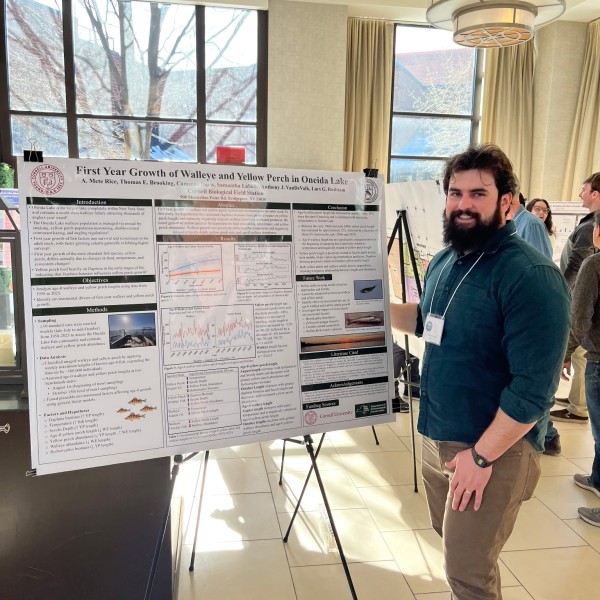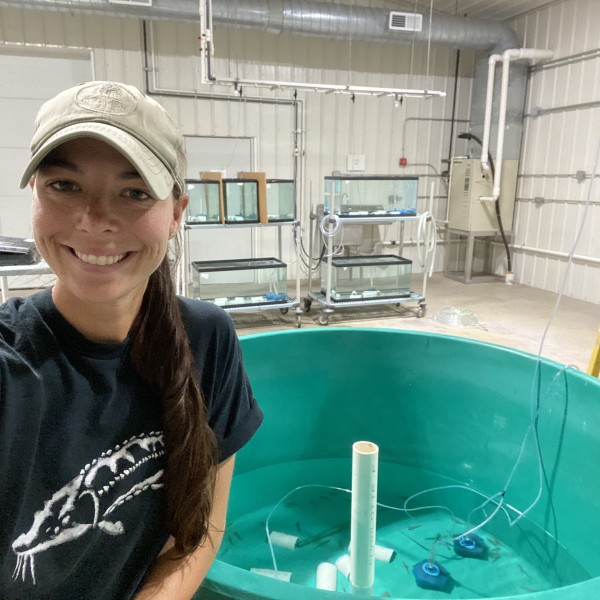In April and August, scientists from the Cornell Biological Field Station board the US Environmental Protection Agency vessel the R/V Lake Guardian for a four week survey of all five Great Lakes. We collect samples for zooplankton and mysid shrimp to extend an important long term time series.
This year during a port stop on the Detroit River on August 9, Joseph Connolly helped lead tours of the laboratory within the vessel, even showing them examples of zooplankton under the microscope that we collect and analyze. Participants included the regional administrator of EPA Region 5 of Chicago and several congressional representatives.






